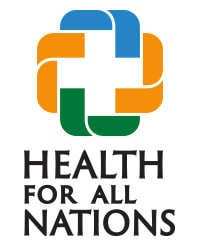|
Today we’ll take up again our journey through the 12 statements we have accumulated over the years and which Dr Peter Yorgin has put into its present form. We are all for building on these statements over time. Today we make the case for “Obeying the rules.” I apologize for the delay in postings. Our family has made a big move of faith from Guatemala to rural Buies Creek, NC. I am working with Campbell University to develop a dept of medical missions and global health. Stay tuned.
We will obey all of the host country rules and laws, to the glory of God.
In His word God makes it clear we are to obey the governing authorities. We would do well to recall what the situation was like in Paul’s time when he wrote the book of Roman’s under the inspiration of the Holy Spirit: Let every person be subject to the governing authorities. For there is no authority except from God, and those that exist have been instituted by God. Roman’s 13:1 In my 11 years of serving in Guatemala I saw very few STMM groups whose healthcare professionals had obtained the necessary credentials to legally practice medicine in that country even though it was a fairly easy and straightforward process. To those who did take the necessary measures to be legal I applaud you. This is most easily done with an in country partner with whom you have developed a true partnership for the long term. Further scriptural support of this mandate can be found in I Peter 2: 13 and following: Be subject for the Lord’s sake to every human institution, whether it be to the emperor as supreme, or to governors as sent by him to punish those who do evil and to praise those who do good. For this is the will of God, that by doing good you should put to silence the ignorance of foolish people. Live as people who are free, not using your freedom as a cover-up for evil, but living as servants of God. Honor everyone. Love the brotherhood. Fear God. Honor the emperor. We would confirm that this applies in cases where conforming to the governing authorities does not require us to act in contradiction to biblical principles. One of the most significant roadblocks to “development” in not yet developed countries is corruption and what this does to the ability to develop trust and accountability not only between the public and the government but between outside agencies and local partners. We believe that bribery is unacceptable in any form for those involved in doing STMM’s. One response you may hear is that “This is just the way things are done here, it’s part of the culture.” You may even be accused of trying to impose “western standards” on local partners. But these are not just western standards they are biblical standards which we can discover with careful exploration of God’s word together with our local partners. I would like to believe that the majority of those doing STMM’s are aware that there are standards and guidelines for the use of medications in the field. I recall many groups trying to get through the airport with hockey bags stuffed full of medications collected and packaged (some not even packaged) to hand out during a week of clinic in some distant village. Many of these medications were near to or had passed their date of expiration and according to the law were not to be imported let alone given to patients in any setting. Yet these well meaning and zealous-to-do-good folks ignored these legal and ethical dilemma’s by simply ignoring them. Also it is fairly routine that groups will attempt to smuggle medical equipment of various kinds (maybe not CT scanners or X-ray machines) which if brought in by normal means would require the payment of a tax of some sort. I heard of one group bringing 500 pairs of glasses to Guatemala who were discovered and were required to pay a $2/pair tax! This can be avoided, usually, by again having a strong/long term partnership developed with a local ministry which can help avoid these problems. Our final point would be that all who practice medicine in another country should obtain malpractice insurance.
0 Comments
Leave a Reply. |
AuthorThis is the blog for the Best Practices in Global Health Mission division of the Center for the Study of Health in Mission. It is a space for all who are interested in sharing opinions, ideas and best practices having to do with Christ centered health related ministry. Archives
April 2020
Categories |

© 2024 Health for All Nations All Rights Reserved In Partnership with Frontier Ventures and the Ralph D. Winter Launch Lab |
ABOUT The mission of Health for All Nations is to engage the global Christian community in the exploration and application of biblical revelation, scientific evidence, and cumulative experience as they relate to health and wholeness. Our mission includes assisting the global Christian church in fulfilling its mandate to promote health and healing among the nations. Learn More |
Proudly powered by Weebly


 RSS Feed
RSS Feed
